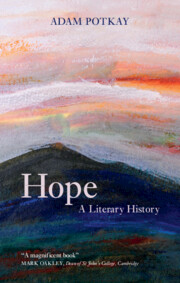Strategic conspiracy narratives: a semiotic approach
 Strategic Conspiracy Narratives proposes an innovative semiotic perspective for analysing how contemporary conspiracy theories are used for shaping interpretation paths and identities of a targeted audience.
Strategic Conspiracy Narratives proposes an innovative semiotic perspective for analysing how contemporary conspiracy theories are used for shaping interpretation paths and identities of a targeted audience.
Conspiracy theories play a significant role in the viral spread of misinformation that has an impact on the formation of public opinion about certain topics. They allow the connecting of different events that have taken place in various times and places and involve several actors that seem incompatible to bystanders. This book focuses on strategic-function conspiracy narratives in the context of (social) media and information conflict. It explicates the strategic devices in how conspiracy theories can be used to evoke a hermeneutics of suspicion – a permanent scepticism and questioning of so-called mainstream media channels and dominant public authorities, delegitimisation of political opponents, and the ongoing search for hidden clues and coverups. The success of strategic dissemination of conspiracy narratives depends on the cultural context, specifics of the targeted audience and the semiotic construction of the message. This book proposes an innovative semiotic perspective for analysing contemporary strategic communication. The authors develop a theoretical framework that is based on semiotics of culture, the notions of strategic narrative and transmedia storytelling.
This book is targeted to specialists and graduate students working on social theory, semiotics, journalism, strategic communication, social media and contemporary social problems in general.
zum Buch im ULB-Katalog
zum Buch auf der Verlags-Website
Hope: a literary history
 Hope for us has a positive connotation. Yet it was criticized in classical antiquity as a distraction from the present moment, as the occasion for irrational and self-destructive thinking, and as a presumption against the gods. To what extent do arguments against hope today remain useful? If hope sounds to us like a good thing, that reaction stems from a progressive political tradition grounded in the French Revolution, aspects of Romantic literature and the influence of the Abrahamic faiths. Ranging both wide and deep, Adam Potkay examines the cases for and against hope found in literature from antiquity to the present. Drawing imaginatively on several fields and creatively juxtaposing poetry, drama, and novels alongside philosophy, theology and political theory, the author brings continually fresh insights to a subject of perennial interest. This is a bold and illuminating new treatment of a long-running literary debate as complex as it is compelling.
Hope for us has a positive connotation. Yet it was criticized in classical antiquity as a distraction from the present moment, as the occasion for irrational and self-destructive thinking, and as a presumption against the gods. To what extent do arguments against hope today remain useful? If hope sounds to us like a good thing, that reaction stems from a progressive political tradition grounded in the French Revolution, aspects of Romantic literature and the influence of the Abrahamic faiths. Ranging both wide and deep, Adam Potkay examines the cases for and against hope found in literature from antiquity to the present. Drawing imaginatively on several fields and creatively juxtaposing poetry, drama, and novels alongside philosophy, theology and political theory, the author brings continually fresh insights to a subject of perennial interest. This is a bold and illuminating new treatment of a long-running literary debate as complex as it is compelling.
zum Buch in disco
zum Buch auf der Verlags-Website
Weitere Titel können Sie in unseren Neuerwerbungslisten für die Sprach- und Literaturwissenschaften allgemein entdecken!
